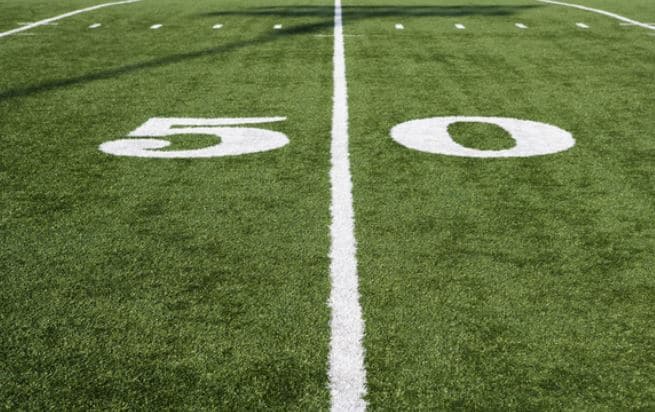While the process continues at the federal level and within the NCAA, Mississippi continues to press forward with its own effort to allow student-athletes to receive compensation for their name, image & likeness (NIL).
Following its passage in both chambers of the legislature, the ‘Mississippi Intercollegiate Athletics Compensation Rights Act’ will land on the desk of Governor Tate Reeves. If signed into law, Mississippi would become the seventh state to enact such legislation with it set to take effect on July 1st—the same day as Flordia’s bill.

The bill specifically outlines that a student-athlete in Mississippi would be able to earn compensation for the use of their NIL and retain an agent to help them do so—both of which are currently prohibited by the NCAA.
Like all other NIL proposals, this would not allow individual schools to pay athletes. Any payments would have to come from local businesses, such as a car dealership, hosting a camp, making posts for a business’s social media platforms, etc.
The bill does have language that attempts to limit the possibility of recruiting violations including lines that state “no student-athlete may earn compensation in exchange for the student-athlete’s athletic ability or participation in intercollegiate athletics or sports competition.” Additionally, a student-athlete cannot enter into an NIL agreement until they are enrolled at a university.
It remains to be seen how the implementation of the law is handled with it directly violating NCAA & individual conference rules. Rep. Mac Huddeltson, who authored an identical bill to the one that passed, told House members back in February that he has received reassurances from council that the governing body of college athletics could not penalize student-athletes in the state under this proposal.
Arizona State head football coach Herm Edwards outlined the issue at hand to SI’s Ross Dellenger earlier this month.
“It puts the schools in their state in a very difficult situation,” Edwards said. “They’ll find themselves violating NCAA rules at the same time complying with state laws. It might end up in court at the end of it.”
While bills have been introduced to address NIL in D.C., it doesn’t appear that it’s on the top of their to-do list. Meanwhile, the NCAA delayed its own implementation of updated NIL rules back in January.
“We’re going to pass NIL and deregulate transfers. That is going to happen,” an unnamed source told ESPN at the time. “There’s just more information-gathering that has to happen, specifically from the DOJ.”
NCAA President Mark Emmert, who has stood in the way of the NIL debate for years, has agreed to meet with a group of players leading the #NotNCAAProperty protest after the NCAA Tournament ends.







